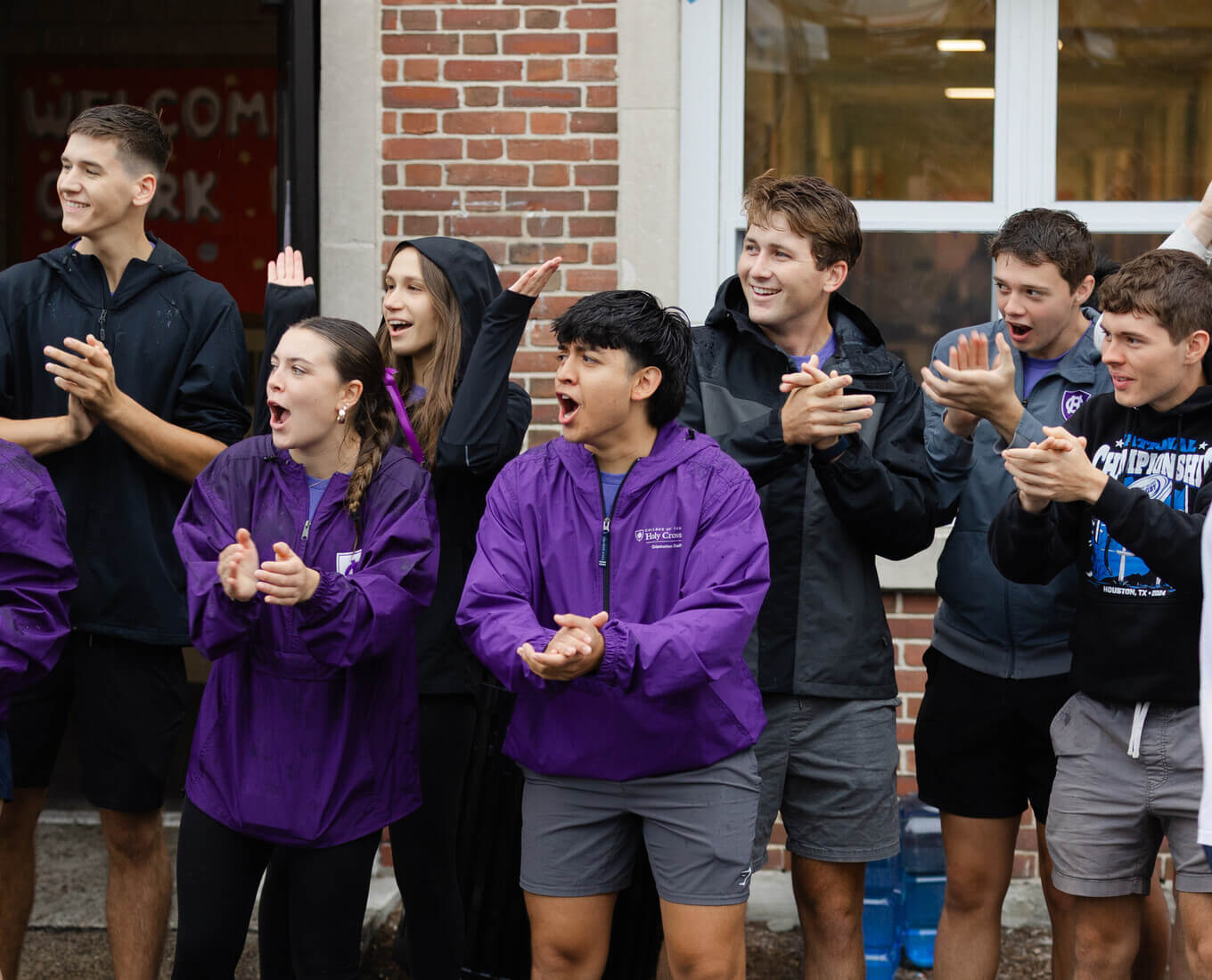
Two Holy Cross students taking part in the Teacher Education Program say that the experiential learning and rich curriculum — which explores the political, historical, social, and psychological dimensions involved in contemporary education — are preparing them exceptionally well for their planned careers as teachers.
Students in the program develop competency in teaching by completing a challenging academic program at Holy Cross and by spending 80 hours in classrooms at Burncoat Middle and High Schools in Worcester.
Michelle Duclos ’08, an English major from Worcester, graduated from Burncoat and is now sitting on the other side of the desk. She says the talented faculty members in the Teacher Education Program helped her broaden her knowledge about education.
Ricardo Dobles, assistant professor, “made me realize that while an urban school such as Burncoat is not shocking to me, it does not mean I should just accept it as it is.” David Roach, lecturer, “made me look at private schools and individualized schools in an in-depth manner that I would not have otherwise.”
She also praises other people in the department, especially Tom Gibbons, academic liaison for the program, for his “on the ground” feedback, advice, and support in and out of the Burncoat classrooms.
The skills she is learning now will certainly help her after graduation and her long-term goals. Duclos has entertained teaching English abroad, and applying to the Jesuit Volunteer Corps. Eventually, she wants to pursue a master’s in English and dance education, so that she can teach both English and dance at a public high school.
“I want my students to be so energized that they learn without knowing they are learning,” she says.
Christine Strawson ’08, a biology major with a premedical concentration from Torrington, Conn., says the thorough process helps students be prepared before they step in front of a classroom of 30 students.
“The classes that I have taken as part of the Teacher Education Program have helped me learn about recent educational research, philosophies, teaching techniques, theories and adolescent development,” she says. “All of the classes have been pertinent to the teaching profession. The pre-practicum portions of the program give us on-site experience and require that we immerse ourselves into the high school or middle school culture. We work closely with our supervising practitioners and develop collegial relationships within the school community. Each week we submit formal lesson plans for each of our three classes — upwards of 45 pages.”
Strawson, a volleyball stand-out who was Patriot League Scholar-Athlete of the Year, plans to return to Connecticut and teach biology at a public high school near her hometown. She plans to pursue her master’s degree in education while she teaches. She is considering earning a second certification in chemistry or general science.
“I want to teach primarily because I had such a wonderful education experience and I want to ensure that other students have the same opportunity,” she says. “I think that teachers have tremendous power in today’s society when it comes to developing future professionals, leaders, citizens and life-long learners. I want to inspire my students to continually ask questions and strive to build upon their foundation of knowledge.”
Related Information:
Profile on Beverley Bell, newly-appointed director of the Teacher Education Program
Teacher Education Program
Read about Christine Strawson\'s thoughts on Holy Cross\' athletics programs in Holy Cross Magazine
The Education of Future Teachers
Two students explain why they value Holy Cross’ distinctive Teacher Education Program
Read Time
2 Minutes
